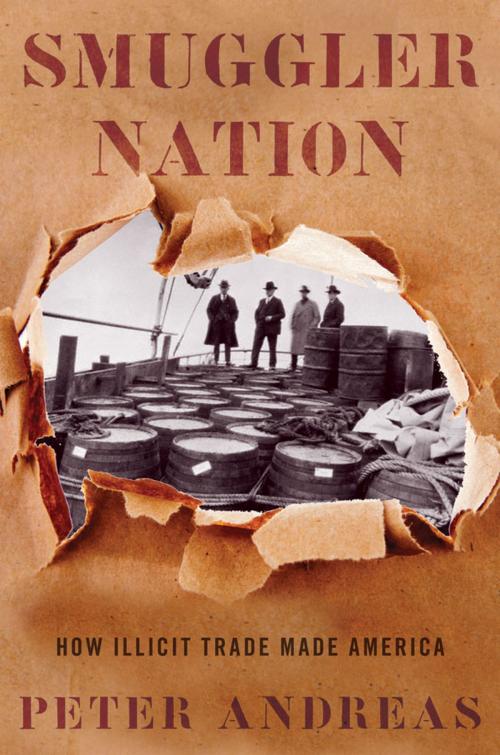Smuggler Nation: How Illicit Trade Made America
How Illicit Trade Made America
Nonfiction, Social & Cultural Studies, Social Science, Crimes & Criminals, Criminology, History, Americas, United States, 20th Century| Author: | Peter Andreas | ISBN: | 9780199301614 |
| Publisher: | Oxford University Press, USA | Publication: | January 16, 2013 |
| Imprint: | Oxford University Press | Language: | English |
| Author: | Peter Andreas |
| ISBN: | 9780199301614 |
| Publisher: | Oxford University Press, USA |
| Publication: | January 16, 2013 |
| Imprint: | Oxford University Press |
| Language: | English |
America is a smuggler nation. Our long history of illicit imports has ranged from West Indies molasses and Dutch gunpowder in the 18th century, to British industrial technologies and African slaves in the 19th century, to French condoms and Canadian booze in the early 20th century, to Mexican workers and Colombian cocaine in the modern era. Contraband capitalism, it turns out, has been an integral part of American capitalism. Providing a sweeping narrative history from colonial times to the present, Smuggler Nation is the first book to retell the story of America--and of its engagement with its neighbors and the rest of the world--as a series of highly contentious battles over clandestine commerce. As Peter Andreas demonstrates in this provocative and fascinating account, smuggling has played a pivotal and too often overlooked role in America's birth, westward expansion, and economic development, while anti-smuggling campaigns have dramatically enhanced the federal government's policing powers. The great irony, Andreas tells us, is that a country that was born and grew up through smuggling is today the world's leading anti-smuggling crusader. In tracing America's long and often tortuous relationship with the murky underworld of smuggling, Andreas provides a much-needed antidote to today's hyperbolic depictions of out-of-control borders and growing global crime threats. Urgent calls by politicians and pundits to regain control of the nation's borders suffer from a severe case of historical amnesia, nostalgically implying that they were ever actually under control. This is pure mythology, says Andreas. For better and for worse, America's borders have always been highly porous. Far from being a new and unprecedented danger to America, the illicit underside of globalization is actually an old American tradition. As Andreas shows, it goes back not just decades but centuries. And its impact has been decidedly double-edged, not only subverting U.S. laws but also helping to fuel America's evolution from a remote British colony to the world's pre-eminent superpower.
America is a smuggler nation. Our long history of illicit imports has ranged from West Indies molasses and Dutch gunpowder in the 18th century, to British industrial technologies and African slaves in the 19th century, to French condoms and Canadian booze in the early 20th century, to Mexican workers and Colombian cocaine in the modern era. Contraband capitalism, it turns out, has been an integral part of American capitalism. Providing a sweeping narrative history from colonial times to the present, Smuggler Nation is the first book to retell the story of America--and of its engagement with its neighbors and the rest of the world--as a series of highly contentious battles over clandestine commerce. As Peter Andreas demonstrates in this provocative and fascinating account, smuggling has played a pivotal and too often overlooked role in America's birth, westward expansion, and economic development, while anti-smuggling campaigns have dramatically enhanced the federal government's policing powers. The great irony, Andreas tells us, is that a country that was born and grew up through smuggling is today the world's leading anti-smuggling crusader. In tracing America's long and often tortuous relationship with the murky underworld of smuggling, Andreas provides a much-needed antidote to today's hyperbolic depictions of out-of-control borders and growing global crime threats. Urgent calls by politicians and pundits to regain control of the nation's borders suffer from a severe case of historical amnesia, nostalgically implying that they were ever actually under control. This is pure mythology, says Andreas. For better and for worse, America's borders have always been highly porous. Far from being a new and unprecedented danger to America, the illicit underside of globalization is actually an old American tradition. As Andreas shows, it goes back not just decades but centuries. And its impact has been decidedly double-edged, not only subverting U.S. laws but also helping to fuel America's evolution from a remote British colony to the world's pre-eminent superpower.















